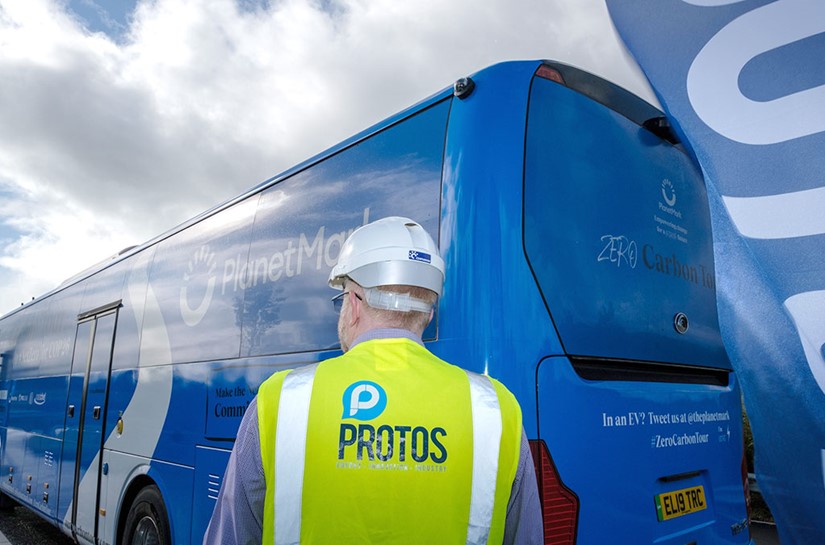Jane Gaston, Development Director at Protos, part of Peel L&P, reflects on how the North West is driving forward the COP26 legacy.
In the immediate aftermath of COP26 there was much talk of how we must ensure a strong legacy and continue to build on the momentum of the two weeks in Glasgow.
While climate change was at the top of the agenda during the conference, since last November the climate many of us find ourselves in has dramatically changed. Soaring energy prices, inflation at record levels and talk of another recession has led some to argue that we just can’t afford to deliver on our net zero ambitions.
The focus on energy prices, and more recently the conflict in the Ukraine, has quite rightly cast a spotlight on where we get our energy from and how we can protect ourselves against volatility in the long-term. While the cost of household energy is one we can all relate to, rising energy costs for manufacturers is also having an impact as the price of daily essentials increase.
But the challenge we face with rising energy prices is not a reason to back track from our climate goals. Far from it. It just goes to underline why we need a long-term, net zero energy strategy in the UK.
The Government’s recently published Energy Security Strategy set out how we can have secure and affordable energy while still meeting our net zero obligations. Hydrogen is set to play a key role with Government doubling the production target by 2030. Here in the North West we’re well placed to help deliver on this ambition, with HyNet, but there are a raft of other hydrogen projects that can make a significant difference, such as the UK first plastic-to-hydrogen facility at Protos. We’re looking to roll out the Powerhouse Energy plastic-to-hydrogen technology with up to 70 sites across the UK which could produce enough hydrogen to fill nearly 5 million buses.
One of the noticeable differences between COP26 and prior COP conferences was the unprecedented business presence and the influence these businesses held on the conference floor. Reaching net zero is not going to happen through government intervention alone, business and industry will also need to step up and take responsibility.
In the North West, the public and private sector are already working closely together to deliver on decarbonisation ambitions. The industry led cluster of which Peel NRE is a founding member – Net Zero North West – brings together business, regional leaders and academia with the aim of being the UKs first net zero carbon industrial cluster by 2040.
The organisation recently published a clear roadmap to decarbonisation for the region. The report outlines the region’s progress in developing a Cluster Plan and how the North West will reach net zero emissions. Part funded by UK Research & Innovation (UKRI) and by industry it will form part of a national cluster plan strategy being prepared by UKRI and Government.
As we move on from the target setting of COP26 into delivery mode one of the big questions that keeps coming up is skills. While on the one hand this presents somewhat of a challenge – do we have the right skills and if not how do we go about getting them? – it’s also a huge opportunity. Our young people were empowered by COP26. They are engaged, impassioned and invested in the agenda. And in the North West alone we need a 660,000 strong green workforce. Raising awareness of the huge job opportunities and green career paths that net zero can offer has to be the priority as we go forward. The second year of the Cluster Plan project will set out the skills requirements and supply chain opportunities the North West needs.
Innovation is undoubtedly going to be an important part of the net zero story. At Protos we’ve developed a blueprint for clustering together different low carbon energy technologies and creating a circular economy. This includes plans for an innovative local CO2 network with carbon capture and storage inevitably going to be a critical part of our transition to net zero.
The recent Queen’s Speech announced that Government is bringing forward a new Energy Security Bill. As well as setting out a national energy strategy that will take us on the journey to net zero I hope it also provides the right policy climate to support innovation at a local level.
Six months on and the message and legacy of COP26 is still as relevant and pressing as ever. We need to work together locally, regionally and nationally to drive green growth and protect the planet for future generations.
